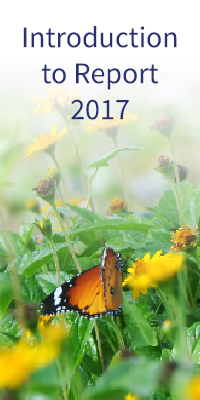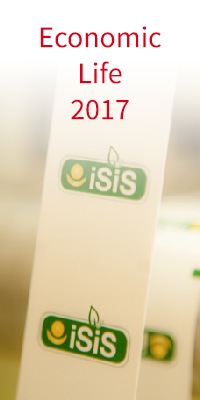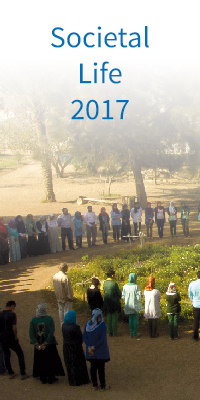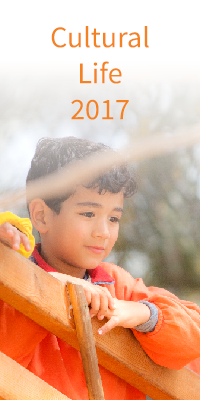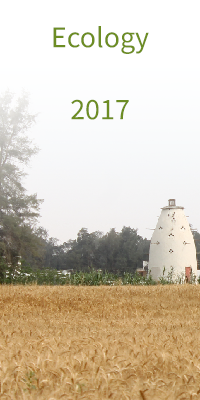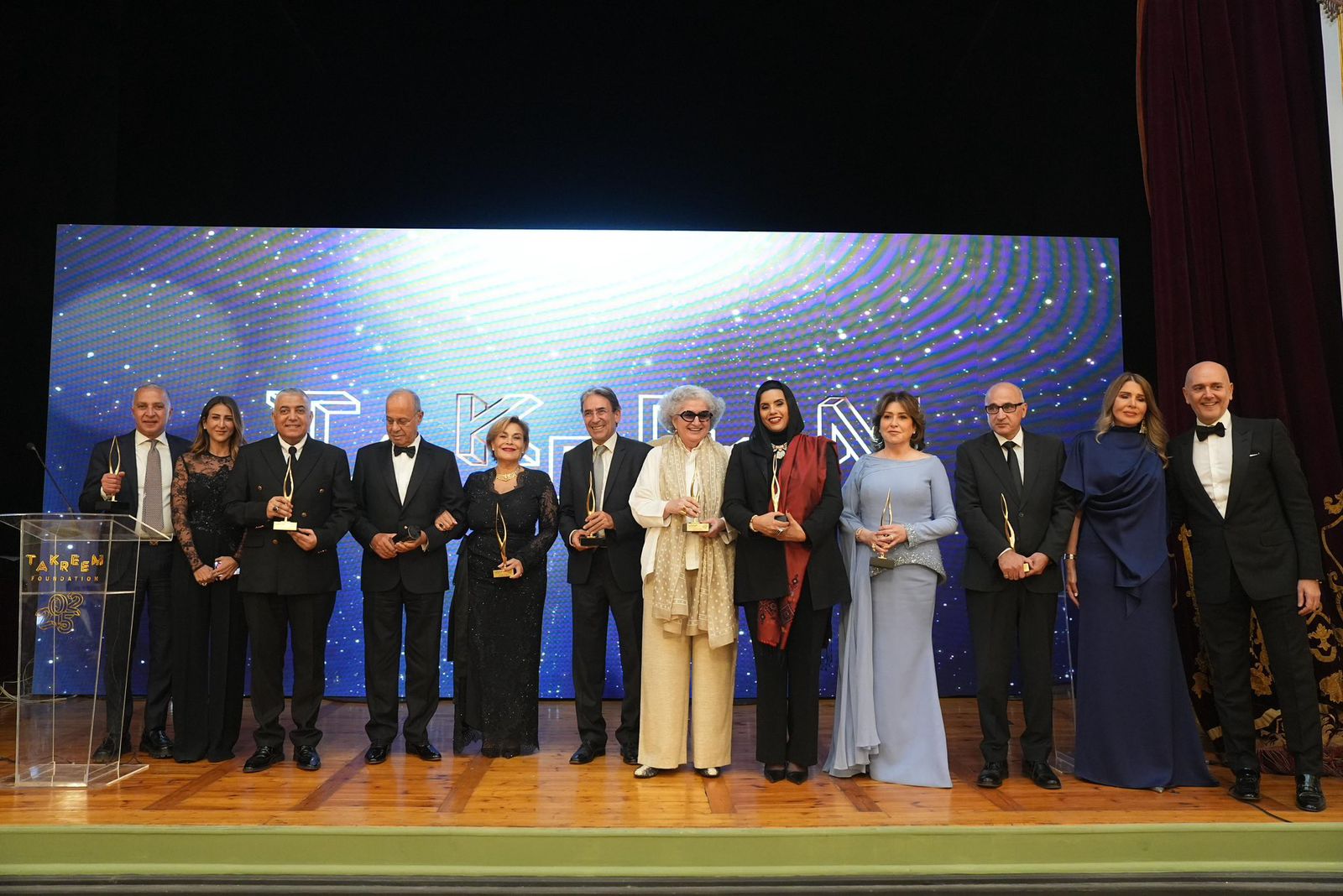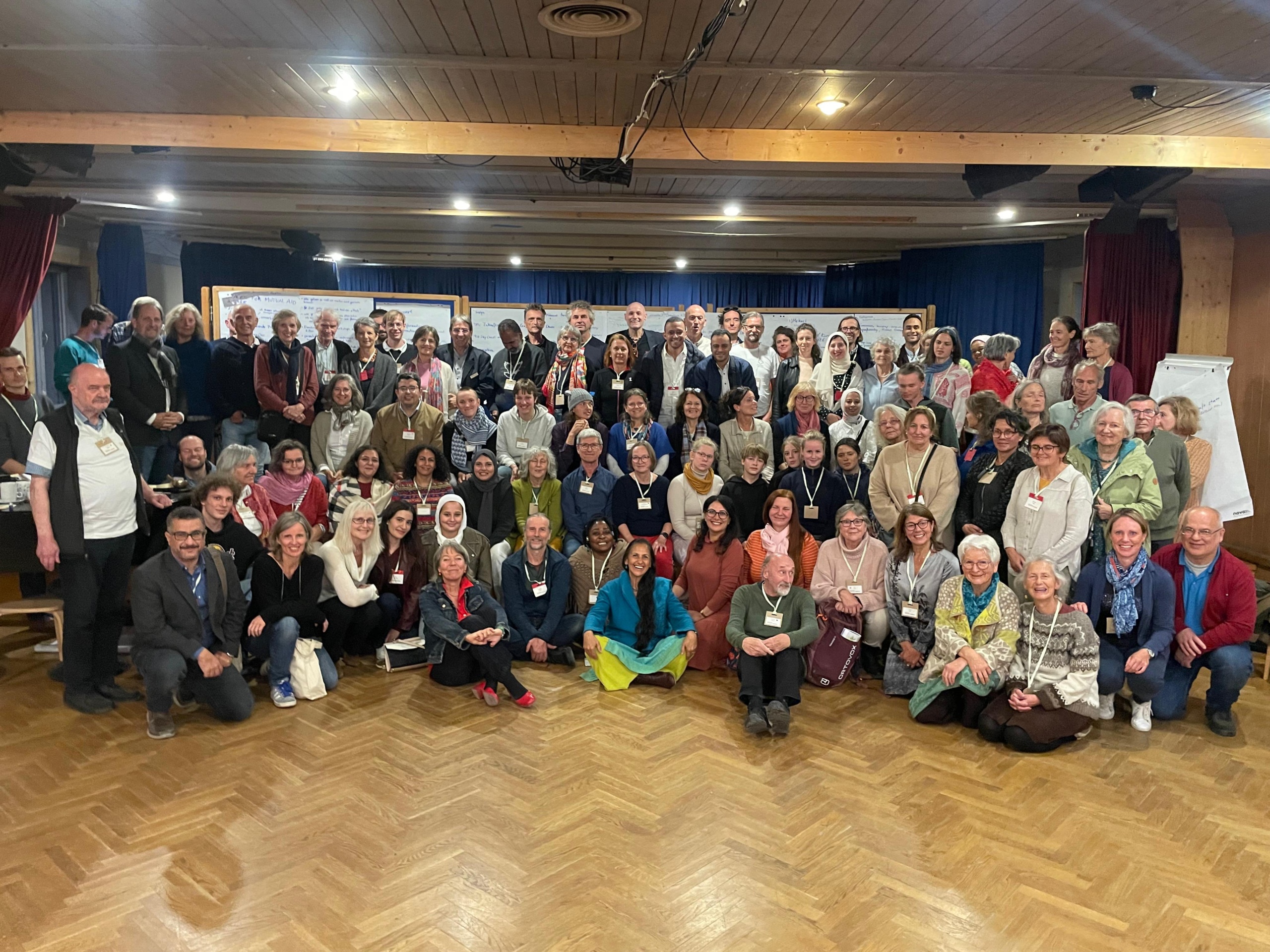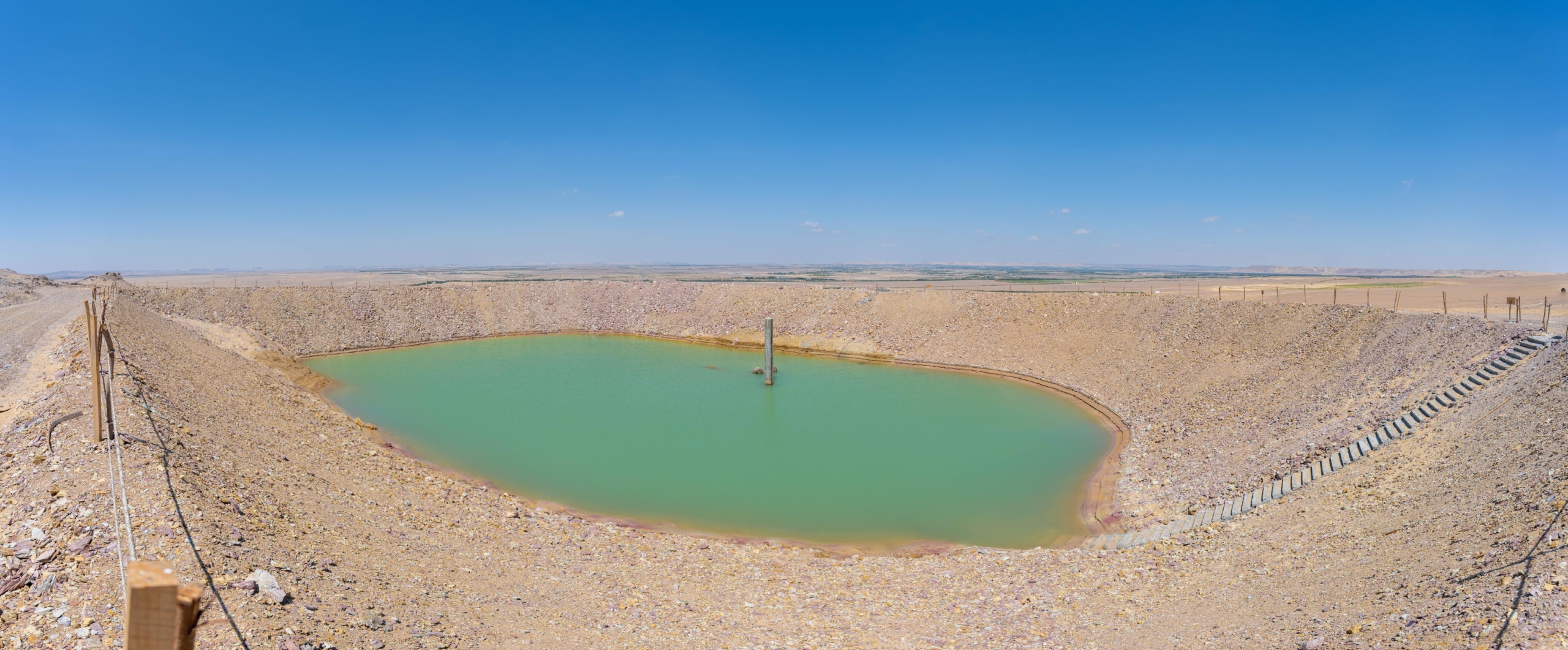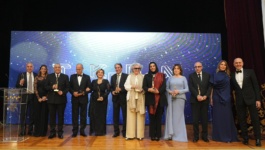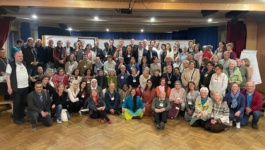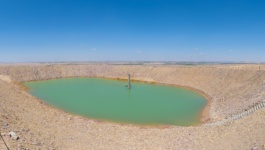Sustainability Report 2017 – Economy
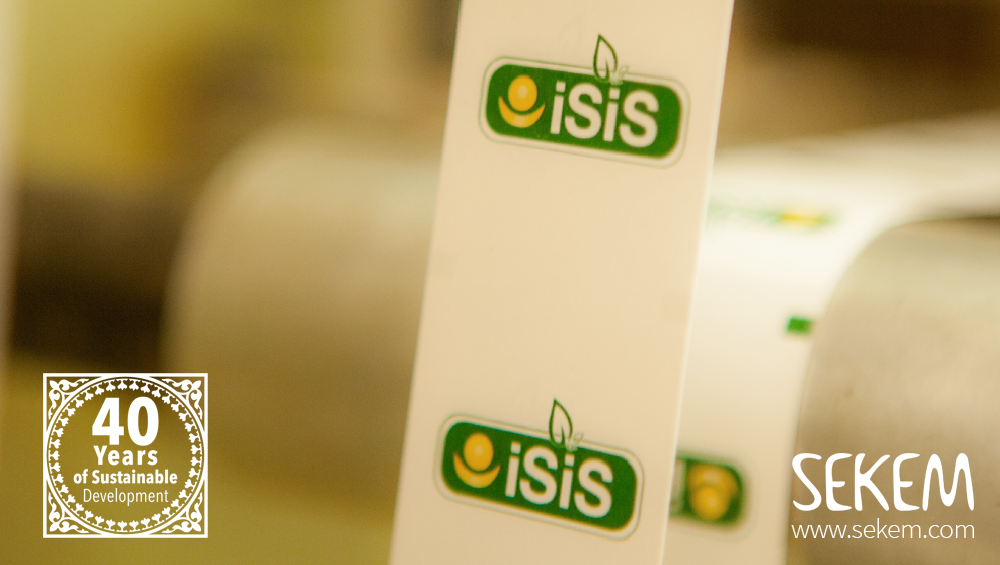
“I believe that in future the meaning of money and banking has to change. If the focus is on people’s development, money must have a different role than being piled up with individuals.”
In 1977 Ibrahim Abouleish founded SEKEM with the vision that all economic activity is conducted in accordance with ecological and ethical principles. This lies at the core of all SEKEM companies and according to that approach success is measured. In regard to current and future developments such as a complexity, population growth or the consideration of external costs, also our economic mission will be adapted.
Facing Economic Challenges
The economic situation in Egypt in 2017 continued to be affected by the devaluation of the Egyptian currency in November 2016 and the resulting consequences for local market. The inflation in the country reached 33% in the middle of the year 2017 while the real income of the majority of Egyptians has shrunk and thus purchasing power has fallen strongly. This had of course impacts on local businesses, which had to deal with sales losses, in addition to the currency-related losses from the previous year. Imported products became suddenly more expensive, which in turn opened up the possibility to manufacture and sell substitute products locally. In the second half of the year, the situation began to recover somewhat, the inflation rate dropped to 23.54% and an initiative to support small and medium-sized enterprises was launched, allowing these companies to receive local debt at around 12% interest rate instead of the 23%.
SEKEM Group had been able to achieve its objectives and reached, even in this challenging situation satisfying results, such as EGP 476.45m net sales, representing growth of over 25%. However, for the coming years, the financial reorganization of SEKEM remains in the foreground. In this context, SEKEM could take some steps to extend part of the long-term liabilities during the year 2017 and, secondly, started to work with its long-term partners on a long-term finacial strategy. This will enable SEKEM to find a solution in the near future, which should strengthen the initiative both in terms of debt reduction and in regard to the cash flow.
Besides, sourcing and producing Organic raw material is becoming more challenging than ever, due to the constantly rising level of water and air pollution. Hence, disseminating the Biodynamic practices as necessary alternative among the farmers remains to be one of the key missions for SEKEM. Sourcing from new, less polluted lands can be also a major undertaking, however it requires investments accordingly.
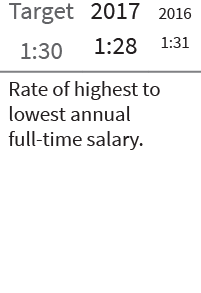
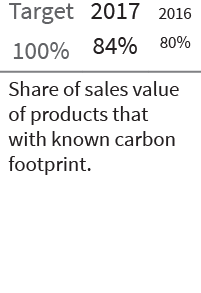
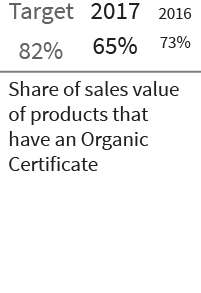
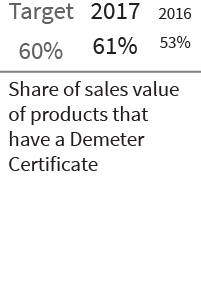
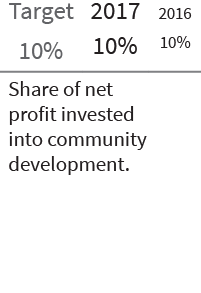
SEKEM Consolidated Key Financials
SEKEM and its subsidiaries were able to grow despite the challenges given in the environment, and achieved a consolidated growth of 25% in net sales, reaching EGP 476.4 million. Gross Profit grew by 19%, reaching EGP 237.9 million, and earnings before tax (EBT) reached EGP 16.3 million.
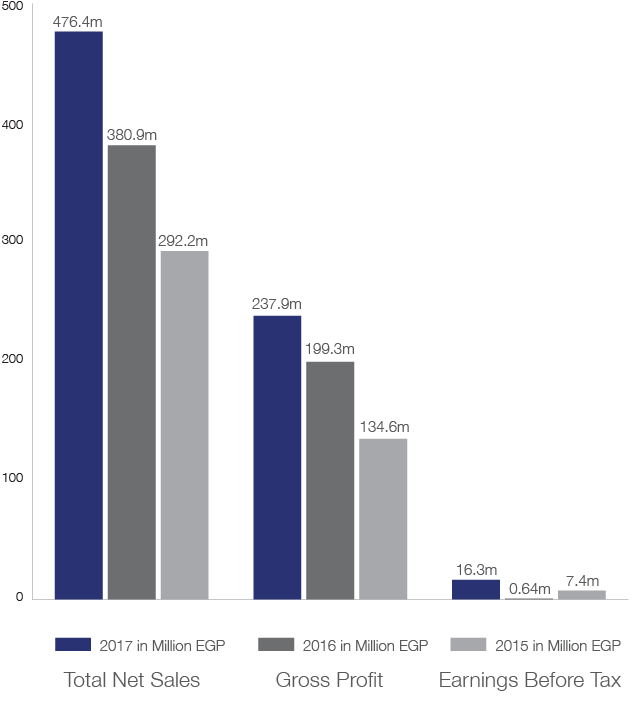
The share of products exported increased in 2017 to 34% versus 30% in 2016, reaching total consolidated export sales of EGP 160.2 million.
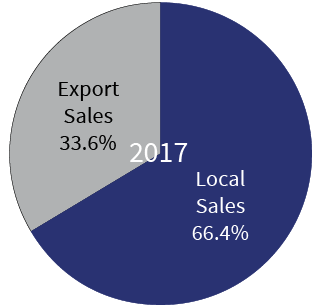
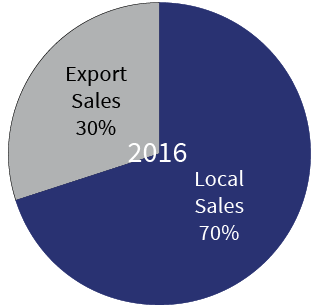
ISIS Organic
ISIS Organic generates its sales mainly from the domestic marke, which faces economic challenges that negatively affect the population’s purchasing power and consumer preferences for high quality and organic products. Therefore, the company could not fully achieve its goals – however a growth compared to the previous year is recorded. The strategy to increase the export share of ISIS Organic resulted in doubling the export turnover. The brand “SEKEM” has been redesigned and launched both in the local and export markets.
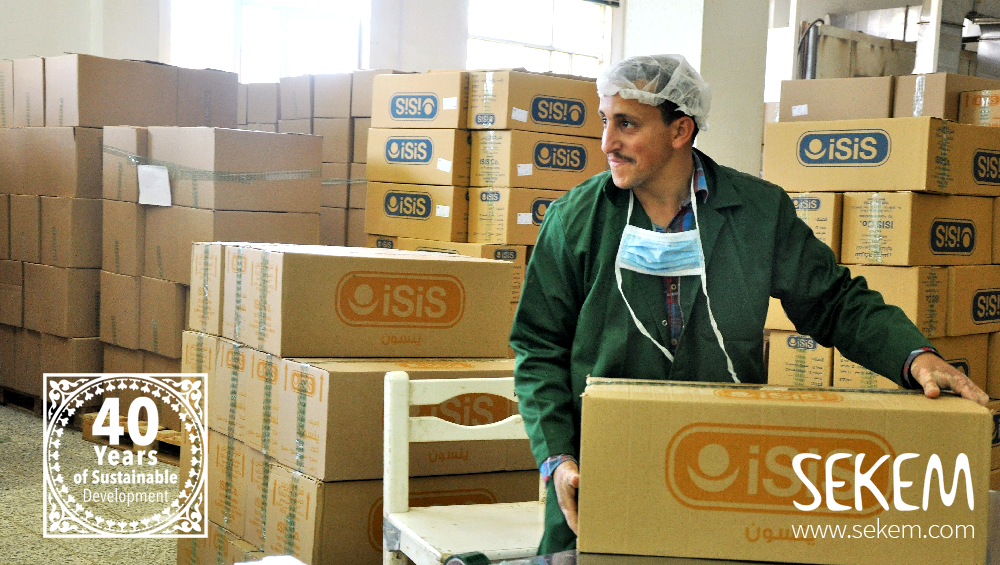
“More than 70% of our reclaimed land produces food and raw materials for the local market. And this is not a coincidence. It helps solving the hunger problem, as Egypt remains highly dependent on food imports”
Lotus
Lotus is one of those companies that benefited from the currency devaluation at the end of 2017. This is due to the export share, which is about 50% of the total sales. Additionally, the company had already purchased the raw materials for 2017 in 2016, based on its earlier production plan – at the same time, the increased inflation rate resulted in rising the company’s overhead expenses. Hence, for instance, raw materials were acquired at prices before the currency devaluation and sold in processed form at prices that were adjusted to the devaluation. On the other hand, Lotus had been impacted by the lower sales of its sister company ISIS Organic, as it is the main purchaser of Lotus’ products. Besides, sourcing organic and biodynamic raw materials is very challenging for the company, due to the rising pollution.
Representatives from both companies, ISIS Organic with the new SEKEM brand, and Lotus, as distributor of raw ingredients, attended the worlds biggest fair for organic products in Germany, the Biofach 2017.
SEKEM at the leading trade fair for the organic industry
ATOS Pharma
For SEKEMs phytopharmaceutical company, ATOS Pharma, the devaluation of the Egyptian Pound and the authorities’ long decision-making process to adjust prices for pharmaceutical products to the economic conditions made it challengingto generate sales in the first half of 2017. However, ATOS Pharma had been able to grow slightly and started to expand the product portfolio that is not regulated by the Ministry of Health. For instance, a probiotic preparation that had been developed in 2017 by the Biomedical Research Department at Heliopolis University is planned to be introduced to the Egyptian pharmaceutical market by ATOS Pharma.
NatureTex
The export-oriented textile company NatureTex could benefit from the currency devaluation and accordingly increased its sales in 2017 – although the sales growth is not in line with the growth in volumes. Increasing customer service and customer acquisition within the company brought a positive impact and will continue to be a priority in 2018. In 2017, NatureTex has started to produce crochet thread and knitting yarn. Besides, the company opened the Outlet “Organic & More” in Cairo, offering high quality organic certified children’s wear for discount prices.
Opening of New NatureTex-Outlet
One of NaturTex’s long standing partners, the german company Alnatura with its brand People Wear Organic (PWO) received the Special Mention Award in the category “Industry Excellence in Branding Fashion” by the German Brand Award 2017 in June. PWO has convinced the jury by its modern design and “the closed brand presence of product, packaging, POS, Website and Social Media.” Thereby, the customer experiences the brand as “emotional, innovative and transparent in the same time.” People Wear Organic is a longstanding partner of NatureTex, SEKEMs Company for Organic cotton textiles and garments as well as one of Alnatura’s brands. Since 1993, NatureTex produces for People Wear Organic GOTS-certified clothing for kids and women.
“We see the Special Mention of German Brand Award as an incentive to continue building our principles and values-DNA as foundation for a successful and sustainable brand management, and to always launch products that are geared to the needs of our customers.”
Nicole Pälicke, from the NatureTex partner People Wear Organic
Truly Economics of Love
On the occasion of SEKEM’s 40th anniversary, Helmy Abouleish delivered a look-back into the history of SEKEM’s business relationships with it’s long-standing financial partners. “Today, much more than a purely formal relationship connects us with our long-term financial partners. There are grown stories, friendships, relationships – to my father, of course, to me and many others in SEKEM.” Also in 2017, SEKEMs financial partners and shareholders had been of immense meaning as they backed up the initiative especially in regards to debt reduction that is challenging SEKEM since the revolutionary years. Hence, for instance Bruno Wenn, Chairman of the German Investment and Development Corporation (DEG) and Dr. Marco Hollekamp, Vice President for international financing, came to SEKEM in 2017. Their visit contributed in consolidating the economic relationship between SEKEM and the DEG which goes back more than 30 years. Likewise, representatives from SEKEM’s shareholder, the GLS Bank, Oikocredit and Triodos Bank, payed a call to SEKEM during 2017, which had not only shown in great direct support but also underlined their willingness and commitment to further stand behind the initiative, regardless how challenging times are.
DEG and SEKEM: Looking together into the future
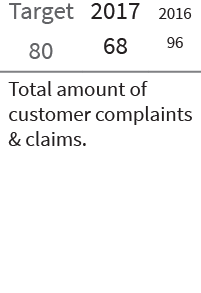
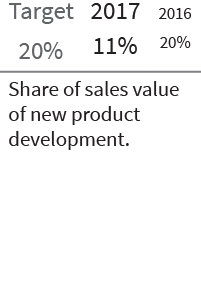
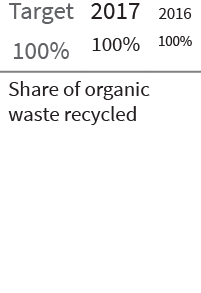
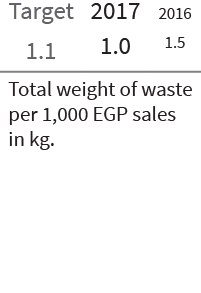
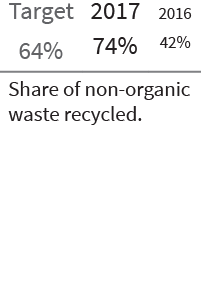
Shaping An Associative Economy
Regardless the economic challenges, or better for this very reason, SEKEM is investing into shaping an alternative and more holistic economic approach, which is based on an associative economy. Therefor, SEKEM attended the Economy Council of the Section for Agriculture at the Goetheanum and the Demeter Association, which focused on the topic “Associative Economics for the Organic Market” and aimed to develop a “Charter for Associative Economics for the Organic Market”. The charter tries to promote an economic-social society based on a transparent, responsible and purposeful cooperation between all members of the value creation.
Developing a Charter for Associative Economy
Sustainable Development in its four dimensions
Report on Sustainable Development 2017
Report 2017 | Economy 2017 | Societal Life 2017 | Cultural Life 2017 | Ecology 2017
Download SEKEMs Sustainability Report 2017 Now
Explore SEKEMs previous sustainability reports
You have a question, a comment or feedback about our report? Send us a message now!
Read SEKEM News

